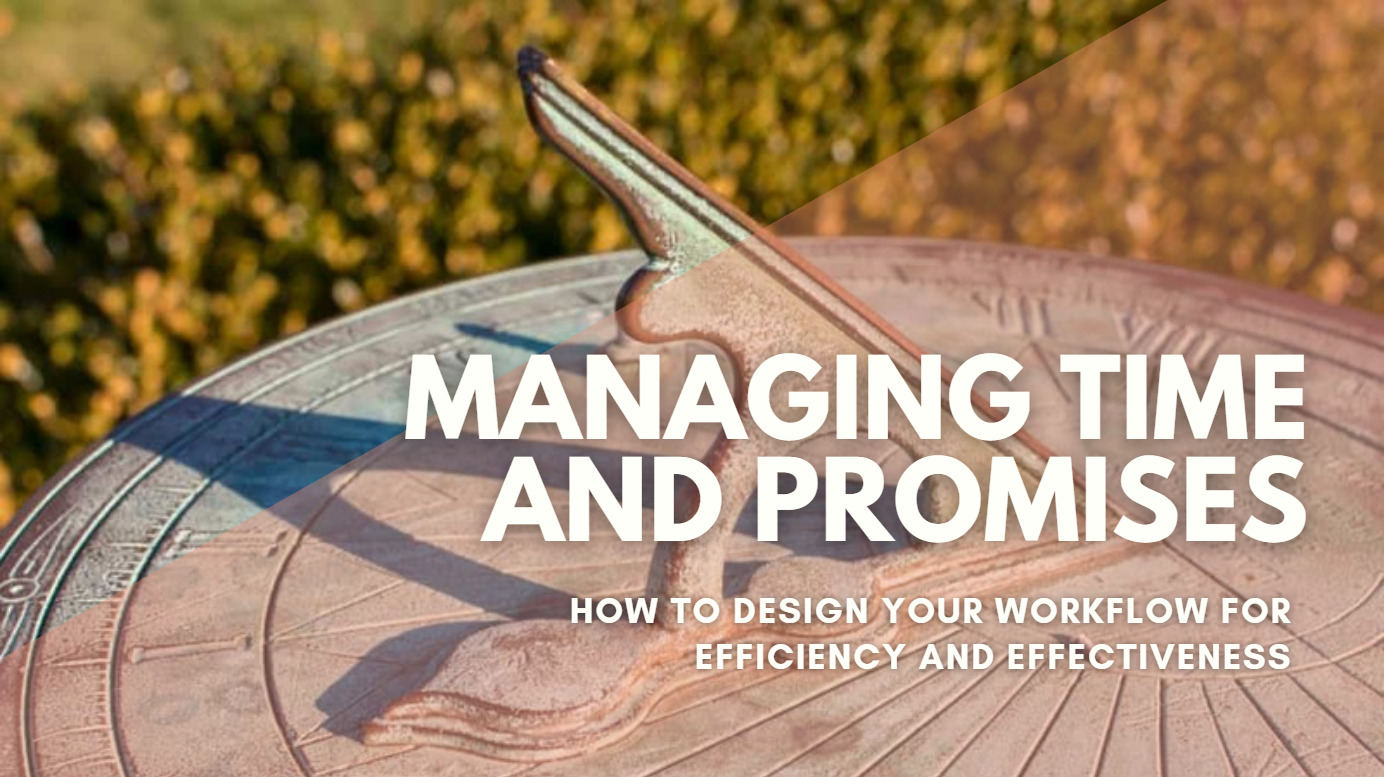
Doing more with less time; making the time you devote to a project count; organizing your workday around the projects that matter most to you; receiving the time and attention you deserve – how can the principles of Permaculture Design help you improve your focus, productivity, and impact?
The answer to this question is going to vary for every person – it depends on each of our own attitudes and beliefs, the skills and methods we acquire and apply, and ultimately our larger cultural landscape and the environment we find ourselves in.
The Gaia U approach to education is designed to provide the skills and the space necessary for students to do more with less time. We approach this from two angles: efficiency (getting things done in a short amount of time) and effectiveness (ensuring time used goes towards the goals that matter).
By looking at time management not only in terms of productivity tips and tricks, but also in relation to energy, attention, and keeping our promises and commitments, Gaia U has designed into its educational programs a broader and holistic understanding of time management which can play an important role in helping you accomplish your goals and make the most of your time.
Here are three quick examples of how Gaia U’s educational programs help students with this highly important, ‘meta-level’ aspect of ensuring the success of self-directed projects:

- Managing Time and Promises
Managing Time and Promises is a Lesson included in the EcoSocial Design Certificate Course and Master’s Program which explores this subject specifically and in greater depth. Applying the Permaculture principle of engaged reflection and observation, the course material and assignments guide students through the process of examining what their strengths and obstacles are with regards to time management, and includes a range of possible techniques and methods which can be tested and applied to address them.
The written course material is then followed up with a Keynote speech by a Gaia U associate along with group discussion in the biweekly class webinar which offers every student the opportunity to reflect on the subject and receive feedback from peers and teachers.
- Think & Listen
One of the most important ways that Gaia U has directly designed this approach into all of its educational programming is through regular “Think & Listen” sessions. Unlike the dynamic chaos of larger group discussions (which have their strengths and weaknesses), Think & Listen sessions are held in small groups (such as break-out rooms of 2 or 3) in Gaia U’s classes and radio calls. Each participant takes ~5 minutes to talk about whatever they want, with a topically relevant prompt provided to stimulate or guide the thinking process. While one participant is talking, the rest of the group listens carefully and respectfully, giving their full and undivided attention to the speaker.
This method is designed to counteract some of the tendencies we have in both speaking and listening which prevent us from making effective use of our time. By providing a forum where everyone has a chance to talk, it ensures that all students have the opportunity to express their thoughts and ideas and contribute to the group understanding. By establishing a rotation between speakers, each listener is able to focus more on what is being said and less on “getting the next word in.” At the end of the Think & Listen, the participants rejoin the main discussion and bring in the most relevant or interesting insights from their session to contribute to the group’s understanding as a whole.
After practicing Think & Listens, students can then use it in other areas of their life, too. And the principles behind this method are broadly relevant to improving our productivity. It shows what can be accomplished in just 5 minutes of articulating or ‘prototyping’ a new idea; and getting in the habit of putting your thoughts out there can help with overcoming obstacles to just getting started with important tasks and trying things out.
In terms of both efficiency and effectiveness, this approach ensures that a short amount of time goes a long way, and is put into a context which enables your goals to take priority.

- Interrogating Time
Finally, at Gaia U, we think it’s important to reflect on the subject of time itself. How is our relationship with time structured by our own personal worldview, and the society we live within? How are dominant conceptions of time implicated in the ecosocial crises our planet is facing; how might other, more marginalized ways of living or experiencing time help heal the planet?
These questions are broad and open to quite a bit of theoretical discussion, but in true Permaculture fashion we also make sure to keep this consideration firmly rooted in practical and regenerative matters. For instance: does waking up every morning to the sun – rather than an alarm clock – improve your energy and productivity for the day?
Ultimately, we believe that the management of time is not just a matter of personal or professional importance – it’s a matter of planetary importance. Finding ways to link these broader ideas and worldviews to our own professional and personal practices will prove essential if we are to collectively respond to and overcome the tremendous challenges of our time. Whether it be habitat destruction or the many facets of climate change, every environmental crisis we face has its time frame and its tipping point.
Gaia U thus views it as essential that our students are equipped as regenerative changemakers capable of efficiently managing their time both personally and professionally, so that we can come together to effectively resolve these crises using the time we have left.